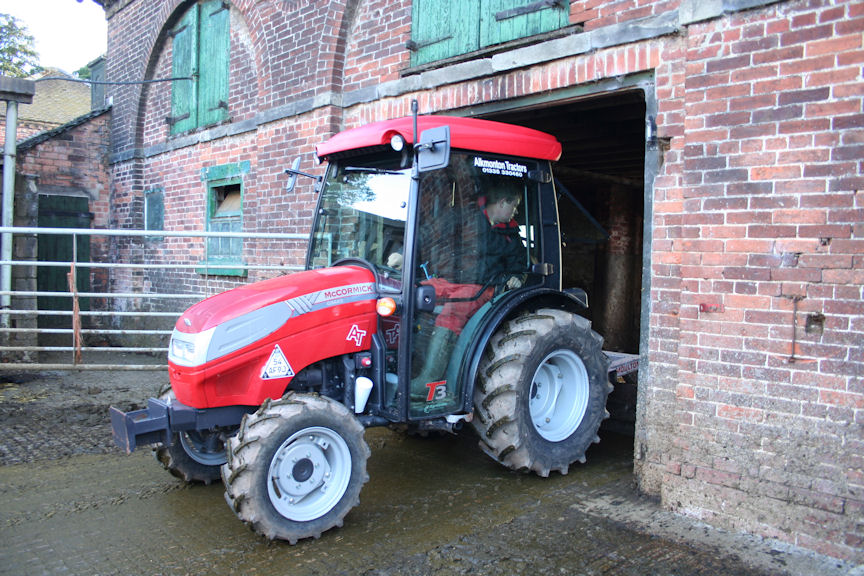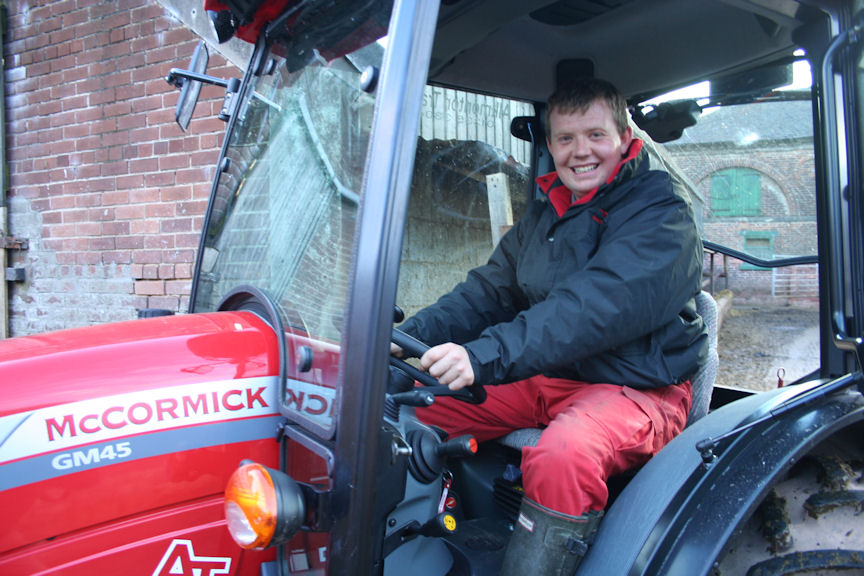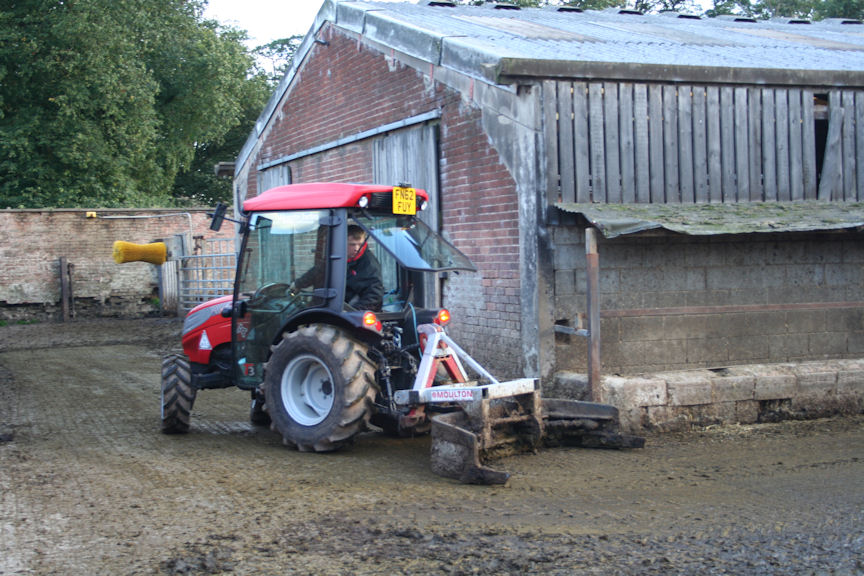
It’s a mucky job that needs doing twice daily without fail when cows are housed through the winter months.
All the more reason, then, to have a decent tractor to use for scraping cubicle houses and yards, reckons Chris Yates. And that is just what he’s had since a venerable David Brown expired after 20 years’ service on the scraper.
“It hated cold mornings and messed up the whole milking routine when it wouldn’t start,” he says. “Now I just jump on the tractor, turn the key and away she goes. Switch on the heater and the Bluetooth radio to play music from my phone – what more do you want?”
Chris and sister Katie are the fourth generation at Ireton Home Farm, Kedleston, Derbyshire, working alongside their father Peter in a business being passed on by their grandfather, John. The 220 acre unit has 100 milking cows in the Holstein herd, with top-notch TMR technology helping achieve a 10,500-litre herd average; all fields are down to grass except for 25 acres of forage maize and 40 acres of grain.

“When it was decided the old DB885 would cost too much to repair, we needed something nippy and low enough to fit in our old sheds but also a tractor with a proper cab,” says Chris Yates. “We do a lot of muck scraping; it takes about two hours a day, so the last thing you want is a tractor without a proper cab.”
That ruled out a couple of top brand candidates and brought the McCormick GM series into the frame at the suggestion of local dealer John Ayre at Alkmonton Tractors.
With power outputs from 35hp to 54hp, this is the smallest tractor in the McCormick range but it is a heavy duty design by compact tractor standards, built for durability as much as performance. The GM45 at Ireton Home Farm is the second most powerful model, with 44hp from its 2-litre Yanmar four-cylinder engine.

The power unit is coupled to a 12x12 synchro shuttle transmission with forward and reverse selected by a stubby lever sprouting from the left side of the dash panel beneath the steering wheel.
“The best things about it are the cab, the tight steering lock and its performance on the road,” says Chris Yates. “The cab’s easy enough to get in and out of for a small tractor and the steering makes it really nippy in buildings and around the yard. But it’s the tractor’s pulling power that really shocked me!”
This unexpected characteristic of a scraper tractor emerged when the little GM was used to haul the farm’s skid-steer loader on a flat-bed trailer to clear out small buildings for a neighbour.
“It pulls really well and I was amazed how it hangs on up a slope,” Chris adds. “I quite often drive the tractor from one place to another because it’s got a good turn of speed and when you’re mucked up you don’t want to be taking your car; I’ve had some right looks driving it up and down the road!”
Back on the scraping job, having a driven front axle has proved a boon because while the two-wheel drive David Brown struggled to get up the muck ramp on icy or snowy mornings, the McCormick will push a scraper-full straight up, usually without needing the diff lock.
For added versatility, a suitcase weight adapter was made in Alkmonton’s workshops so that the little machine can handle a cubicle sawdust spreader should the regular tractor fail one morning.
“I daresay some people would question spending out on a new tractor for muck scraping but it’s one of the most used and abused tractors on the farm,” Chris Yates points out. “Buying second-hand means you’re buying other people’s problems and with regular servicing and a power wash every month or so, we’re hopeful this little tractor will last as long as the old one did.”
